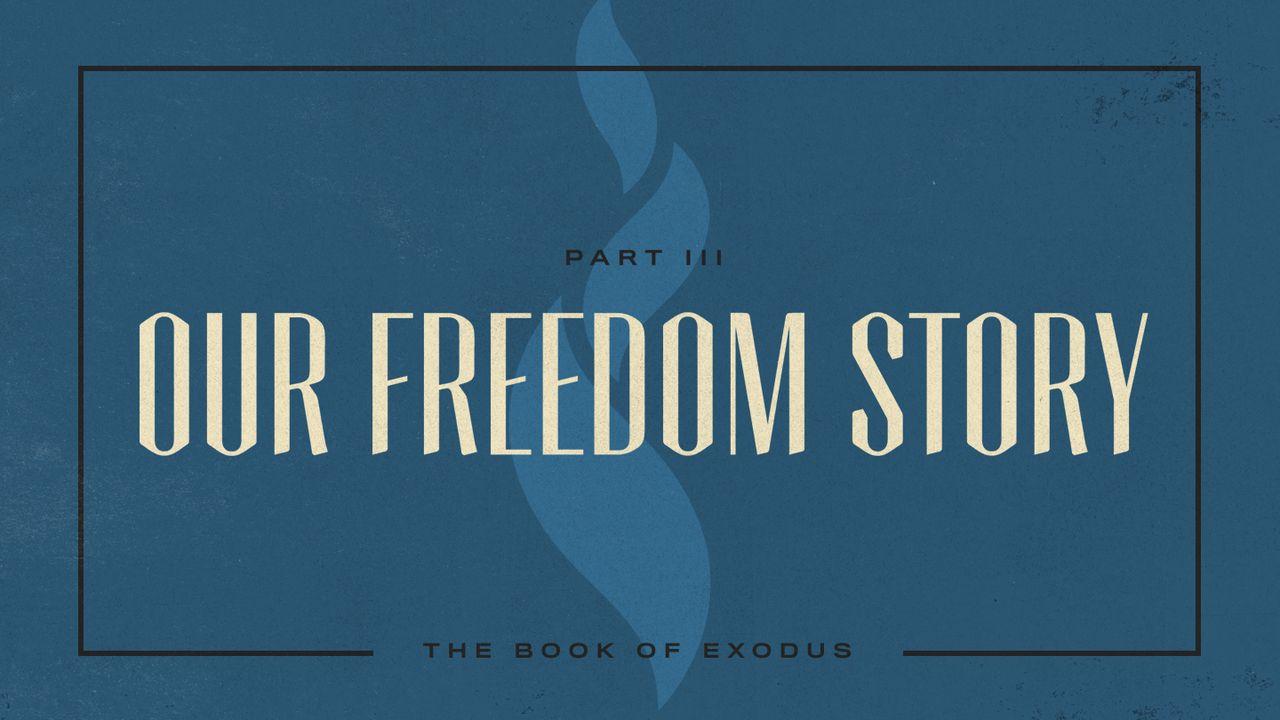Exodus: Our Freedom StorySample

A Cry, A Conclusion
By Pastor Dan Hickling
“So Moses cried out to the Lord, saying, ‘What shall I do with this people? They are almost ready to stone me!’ And the Lord said to Moses, ‘Go on before the people, and take with you some of the elders of Israel. Also take in your hand your rod with which you struck the river, and go. Behold, I will stand before you there on the rock in Horeb; and you shall strike the rock, and water will come out of it, that the people may drink.’ And Moses did so in the sight of the elders of Israel. So he called the name of the place Massah and Meribah, because of the contention of the children of Israel, and because they tempted the Lord, saying, ‘Is the Lord among us or not?’”—Exodus 17:4–7 (NKJV)
Yesterday, we saw God give the commandment for Israel to break their camp and travel to a region called Rephidim. We also saw how that place had no water and how it led to the collective complaint the children of Israel directed toward Moses. They held him responsible for simply doing what God told him to do. Today, however, we’re going to see how this chapter in Israel’s history plays out by focusing on two more words starting with the letter “C.”
Our next word is “cry,” because that’s what Moses did when close to 2 million people complained to him. In all actuality, that’s really the only thing Moses could have done at that point. Here he was in the middle of nowhere with millions of thirsty, angry, desperate people looking for a scapegoat and he’s it! He can’t call the police, the paramedics, or any kind of rescue squad. He just has the Lord to cry out to, which is what he does.
We need to take a cue from Moses here. When we’re faced with something formidable as Moses was (when we feel like there’s no way out, around, or over the obstacle), the best thing we can do is cry out to the Lord! In fact, we shouldn’t wait for a moment of desperation to do so, but our lives should be in a perpetual position of calling out to Him. Why? Because such a state is an acknowledgment of how completely dependent we are on Him. God is not a resource reserved for the really big problems of life, but the One we run to in all things and at all times. That’s what He wants, and it’s what Jesus reminds us of in John 15:5 as He tells us we can do “nothing” apart from Him. Translation: We need to live in total dependence on God, continually calling and crying out to Him.
And now we come to our final word as we see the “conclusion” of this episode. What happens when God gives a commandment that leads to a complaint that causes Moses to cry out to Him? We see that God brings about a conclusion, a miraculous conclusion where water flows from the most unlikely source—a rock. And amazingly, there was plenty of water to go around for all. It was the perfect conclusion to their dilemma that only God could orchestrate.
The Lord wanted to provide His people with the water they needed all along, but He wanted to teach them (and us) a few things first. He wanted them to see that obeying His commandments isn’t always easy but that it’s always the right decision regardless of how others feel about it. He wanted them to understand the importance and power of crying out to Him. He wanted them to see that His conclusions to their problems are all they need. And finally, He wanted them to know they can trust in His conclusions as they obey His commands and cry out to Him.
Pause: What spiritual truth can you take away from the words, “cry” and “conclusion”?
Practice: Think about the last time you cried out to God and what happened.
Pray: Father, help me to learn the lessons You taught Your people in the wilderness so many centuries ago. Help me to know I can depend on Your perfect conclusion when I obey Your commands and cry out to You in childlike faith. Amen.
Scripture
About this Plan

In part three of this seven-part study through the Book of Exodus, we'll explore Exodus 14–17.
More
We would like to thank Calvary Chapel Ft. Lauderdale for providing this plan. For more information, please visit: http://resources.calvaryftl.org/Exodus
Related Plans

When God Is Silent: Finding Faith in the Waiting

Ways to Overcome Your Fears: Devotions for Girls (I Am Fearless)

Cornerstone: Rebuild, Renew, Restore

Forgive Them Too??

Who Is Jesus?

Fearless & Free: Overcoming Fear With Faith a 5-Day Plan With Kelly Roberson

Jesus Never Said ‘Hustle’: Finding True Rest in a Burnout World

Not Giving Into Fear and Peer Pressure: Devotions for Girls (I Am Fearless)

God Gives Good Gifts to Everyone
